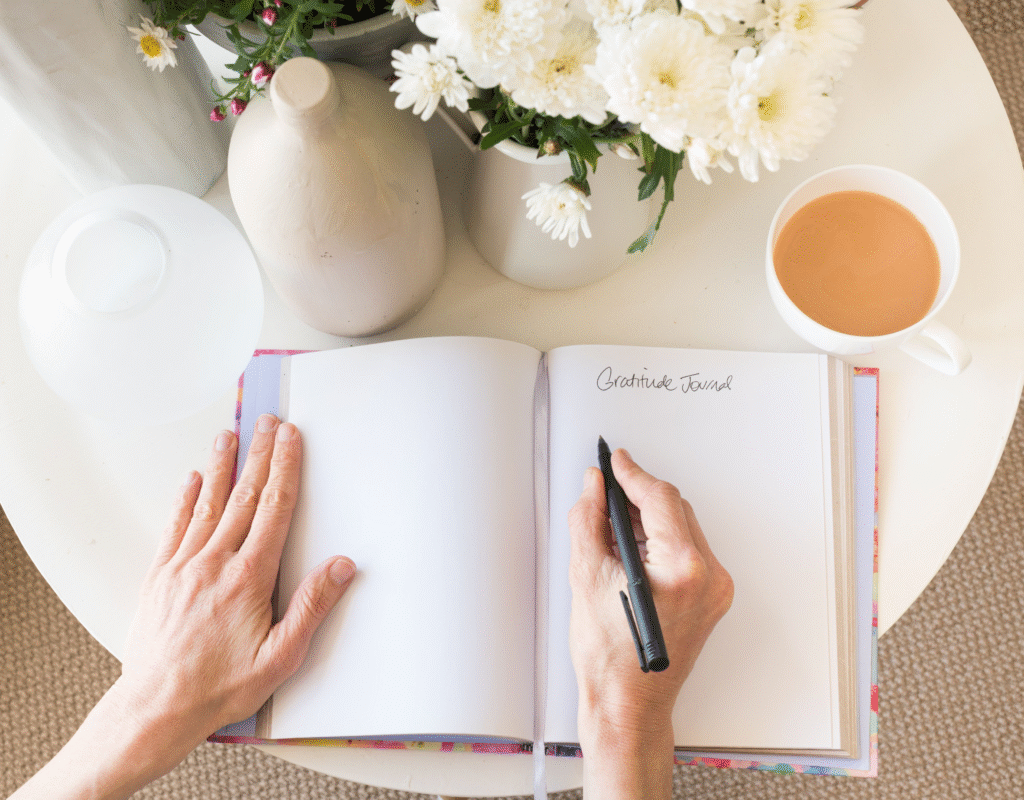Physical Address
304 North Cardinal St.
Dorchester Center, MA 02124
Physical Address
304 North Cardinal St.
Dorchester Center, MA 02124

I once believed journaling was only for teen diaries or authors who had too much idle time. Boy, was I mistaken. The moment I began journaling on a regular basis, my mental clarity, emotional stability, and productivity all changed in ways I never imagined. Allow me to take you through why it became one of the most effective tools in my own growth journey—and how it can be for you as well.
At its simplest, journaling is just writing down what you’re thinking. But don’t be fooled by that simplicity—this little habit has huge might. Whether you’re recording emotions, daily happenings, or aims, it is like a personal shrink, a sounding board, and sometimes even a mirror you never knew existed. It provides the freedom to learn about your mind without fear of judgment. And that’s not easy in today’s noisy, always-on world.
I recall opening my notebook, not knowing what to say. So I just wrote what I felt: exhausted, overwhelmed, and unsure. To my surprise, I felt lighter immediately afterward. It wasn’t a magic solution, but it was a beginning—one I continued to return to.
With time, I began to see patterns in my moods, recognizing what caused me to feel anxious, and acknowledging small victories I previously ignored. My journal was the only place I could always tell the truth—to myself.

Let’s be real, there is no one-size-fits-all approach to journaling. I tried a few different kinds of journals before discovering what worked for me. Here’s what worked for me—and could work for you too.
This was my first type of journal that I fell in love with. Each night, I’d write down three things for which I was thankful—sometimes significant (landing a client), sometimes minute (a good cup of coffee). As time went on, I could feel a huge shift in my own mindset. I quit stressing about what I lacked and began to appreciate what I had. That’s the thing about a gratitude journal—it quietly rewires your brain to look for the good.
If you’ve ever wondered, “Why am I feeling this way?” a mood journal is your solution. I was feeling emotionally all over the place until I began writing down my moods on a daily basis—what caused them, how long they lasted, and what relieved them. This tool allowed me to see patterns, such as how bad sleep or certain talks drained me. It’s like charting your emotional weather—and believe me, it’s eye-opening.
The daily journal was my anchor of grounding. Simply writing about what happened during the day provided me with a feeling of structure and introspection. It wasn’t about being a poet. It was about working through my reality. With time, I could see how much I’d progressed simply by being diligent in writing—even if for five minutes each day.

During my most stressful weeks, the mindfulness journal grounded me. I’d put down on paper what I was experiencing in the moment, what I could see, hear, smell, and touch. It brought me back to the present. It reduced my anxiety and put me more into my senses. It’s meditative, soothing, and most importantly, it does not involve sitting quietly for hours.
The day I began to use a goal journal, everything shifted. I wasn’t daydreaming—I was planning, monitoring, and adapting. I would put weekly goals in writing and break them down into little steps that were manageable. This journal kept me on track and accountable. It made my dreams seem less far away and more achievable.
There’s something profoundly therapeutic about putting pen to paper. it lets you externalize your thoughts, and that’s healing. It’s like letting the storm in your head pour onto the page so your mind can be calm again.
I started my gratitude practice when I was in a rough patch. It felt forced at first—what could I be grateful for when everything felt so hard? But slowly, the list grew. From sunlight on my desk to kind words from a friend. This small shift helped me stop spiraling and start smiling again.

Research indicates gratitude journaling can enhance sleep, reduce stress, and bring more happiness. I didn’t require research to inform me of that—I lived it. But it’s nice to know science verifies what I felt.
Having completed a month of daily gratitude journaling, my own outlook shifted. I found I was waking up in better moods, responding with more patience, and getting through setbacks with more ease. That’s not magic—that’s mindfulness at work.
Your moods are messages. A mood journal assists in deciphering them. Mine revealed to me that I wasn’t merely “moody”—I had patterns. Missing sleep, messy space, negative dialogue—they all had emotional payoffs.
I began to realize that I was always tired on Mondays. It turned out to be the morning meeting that was causing me stress. Once I discovered that, I shifted my process and felt more relaxed.
This journal became a routine part of my self-care. Paying attention to how I felt allowed me to respond more effectively. Bad day? I knew to walk or take a nap. Great day? I’d lean in and get more done.
Every day, writing comes to feel like a mind exercise. I went through with it, even when I didn’t have a clue what to write. The consistency created mental toughness and kept me centered regardless of what happened during the day.
How ironic that tiny actions compound. That five-minute journaling built discipline, self-awareness, and emotional resilience over time.
It’s not journaling for an hour—unless you so desire. It’s about establishing a rhythm that works for you.

I experimented with both. Morning writing served as a way to set intentions. Evening journaling allowed me to reflect. Experiment with both and see what suits your flow.
Keep your journal in plain sight. Utilize prompts when stumped. And never set out to be perfect—just honest.
Used to overthink it. Attempted to sound profound. Compared my journals to others’. Biggest tip? Don’t do that. This is for you, not someone else. Write freely. Scribble. Doodle. Just show up.
Reading old entries is like time travel. You’ll see growth, strength, lessons. It’s powerful to witness your evolution in your own handwriting.
Don’t wait for the perfect journal or the perfect moment. Grab a notebook. Open a blank doc. Start. You’ll be amazed at what unfolds.
I used to feel stuck in patterns I couldn’t get my head around, emotionally reactive, and overwhelmed. Then journaling happened. And now I feel more in charge of my world, more aware, and more present. If I had to suggest one habit to anyone looking to get to know themselves better—it’s journaling. Gratitude journal, mood journal, daily journal—whatever it is, it can change your life. Try it. Trust it. You’ve got this.
Q1: How do I know what kind of journal is best for me?
Experiment with some! Begin with a mood or gratitude journal. Get a feel for what comes naturally and is useful, and then branch out.
Q2: Morning or evening—is one better for journaling?
There isn’t a better one—just what you prefer. Morning is a time-setter. Evening aids in reflection.
Q3: For how long should I journal daily?
Even 5 minutes are potent. Don’t shoot for length—shoot for consistency.
Q4: Can journaling assist with anxiety or stress?
Absolutely. Journaling is known to lessen anxiety and stress by allowing you to work through emotions and clear your mind.
Q5: Do I need a special journal to get started?
Not at all. A plain notebook or even a digital file will do the trick. It’s the content, not the container.
Share your details, and we will get back to you shortly!
This will close in 0 seconds
Share your details, and we will get back to you shortly!
This will close in 0 seconds